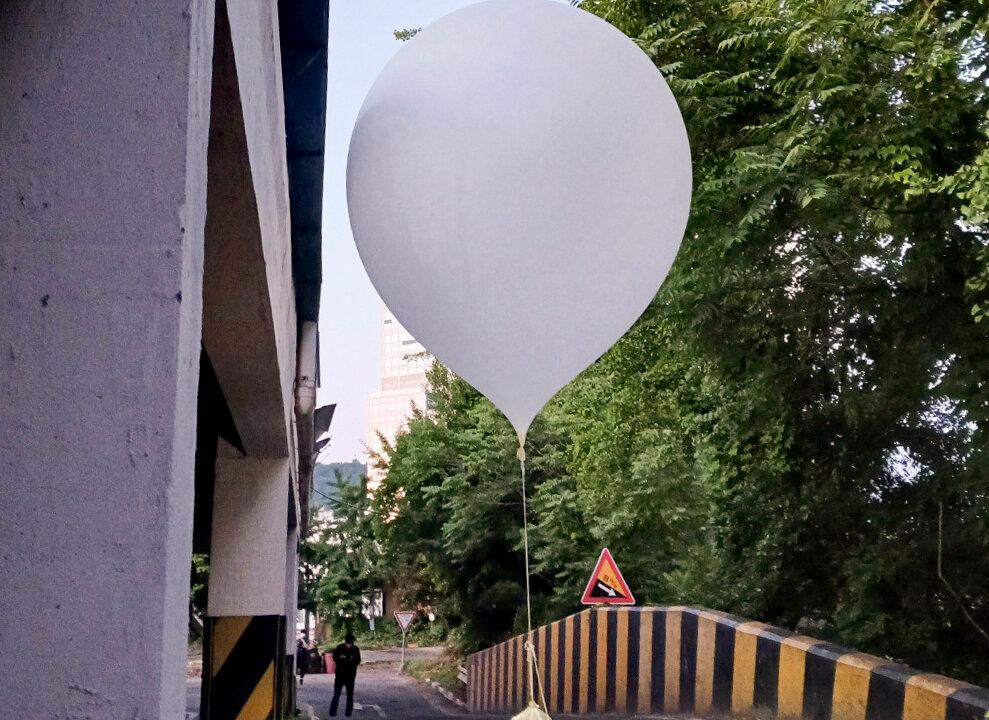South Korea is ending a landmark military agreement with North Korea following a campaign of harassment by the North that included floating refuse over its southern neighbor.
The communist regime in Pyongyang flew more than 1,000 large balloons across the Korean Demilitarized Zone (DMZ) and over South Korea last week. The balloons reportedly carried an assortment of refuse, including trash, manure, waste batteries, cigarette butts, and soiled diapers.




